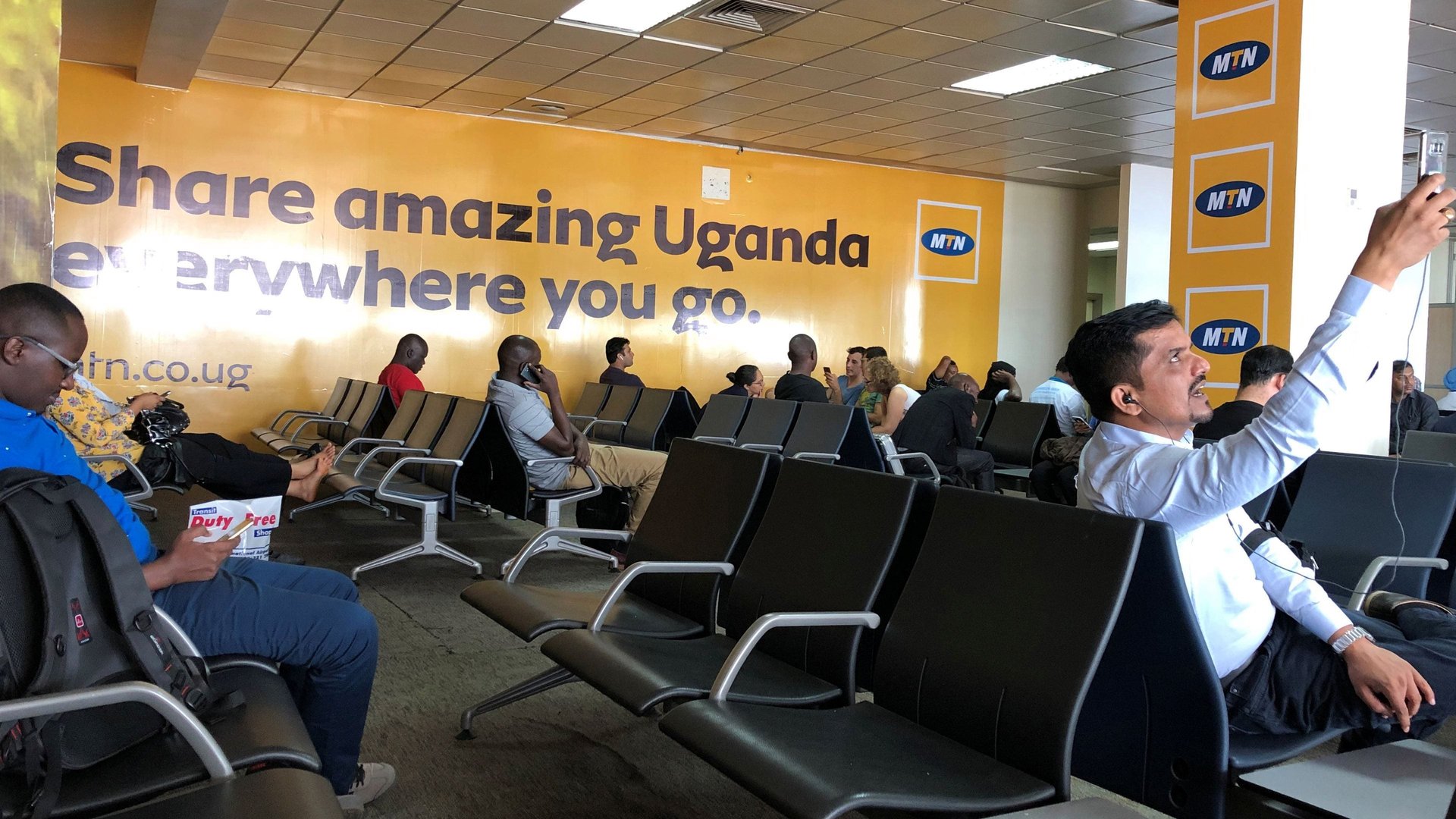In under a month, Uganda has deported four top MTN executives, including the CEO
Things have come to a pretty pass in the seven-month confrontation between Ugandan security agencies and the country’s biggest telecom company, MTN. At mid-night on Thursday (Feb.14), the MTN Uganda chief executive was deported from the country.


Things have come to a pretty pass in the seven-month confrontation between Ugandan security agencies and the country’s biggest telecom company, MTN. At mid-night on Thursday (Feb.14), the MTN Uganda chief executive was deported from the country.
Wim Vanhelleputte, a Belgian citizen, is the fourth company executive to be deported from the country in less than a month.
On Jan. 20, the company’s chief marketing officer, Olivier Prentout, a French citizen, was arrested at Entebbe airport as he returned from a business trip abroad. He was subsequently deported to France. The following morning, Rwandan national Annie Bilenge Tabura, the general manager for sales and distribution, was arrested from at the MTN offices in Kampala and summarily deported.
A police statement said the two had been engaged in “acts which compromise national security.” A day later, Elsa Mussolini, the head of the company’s mobile money business was deported as well. Prior to her deportation, she was summoned to Uganda Police’s special investigations department. The summons letter said she was under investigation in a case of “inciting violence.”
Until his deportation order was signed, the MTN Uganda chief executive Vanhelleputte held permanent residence in Uganda (his wife is Ugandan). Uganda’s minister for foreign affairs removed that privilege by signing a letter which declared van Helleputte a “prohibited immigrant.”
MTN Uganda said in a statement the company had not been notified of the grounds for its CEO’s deportation and was “working hard to establish the precise reasons.” However, the company’s clashes with security date back to July 2 when state operatives raided its data center, in Mutundwe, a Kampala surburb.
In a letter written to the telecom regulator on July 3, MTN, whose parent company is headquartered in South Africa, complained of “illegal intrusion into the data center and the disconnection of the four information servers.” Ugandan press now reports the security agencies have since been investigating the company and its staff for espionage, tax evasion and money laundering.
MTN’s operating license in Uganda expired in October last year. The renewal process has been protracted and contested. Initially, the Ugandan regulators wanted the company to pay $100 million for the license renewal. MTN countered with an offer of $28 million pointing out the new policy on broadband internet will require it to make heavy investments in the country in the next 10-year operating period.
When the company and telecoms regulator settled on a $58 million renewal fee, Uganda president Museveni wrote an angry letter demanding an explanation from the regulator. The government has also demanded MTN lists on the Uganda Stock Exchange. This hasn’t happened. Tweeting about his meeting with the group’s CEO in Davos last month, Museveni repeated this expectation.
Separately, in September 2018, the MTN mobile money business released an advert that quickly went viral after Ugandans drew parallels between the story of its central character “Bosco Katala” with president Yoweri Museveni’s. In the advert, Bosco, a country bumpkin makes it to the city but in amusing ways, retains many of his country ways – such as riding his bicycle inside a supermarket.
President Museveni, 74, who captured power following a bush war 33-years ago, lives with full presidential pomp but will occasionally amuse Ugandans with eccentric acts like riding a bicycle before TV cameras or advising irrigation using plastic bottles. He noticed and disapproved of being called Bosco. In a national address around that time, he opened with, “I am not Bosco.”
In the Ugandan security circles, the president’s hurt feelings are zealously defended. In January, a young man was arrested referring to the president as Bosco. The academic Stella Nyanzi, who called him “a pair of buttocks,” has since November been in jail (again) for another unflattering Facebook post about him.
MTN’s reaction to the wave of deportation has been noticeably muted. In all its statements following the arrests and deportations, the company reiterates that it is “fully committed to respecting and operating within the laws of the country.” Within hours of the Vanhelleputte’s deportation, the company appointed its Chief Technology Officer, Gordian Kyomukama, a Ugandan, to act as the CEO.
Sign up to the Quartz Africa Weekly Brief here for news and analysis on African business, tech and innovation in your inbox